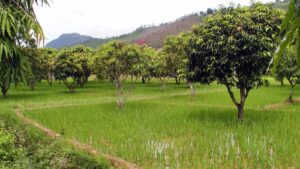Controversial ecological topics stir up passionate debates and often serve as the focal points of global discourse. From climate change policies to wildlife conservation strategies, these contentious issues encapsulate the complexities of balancing environmental preservation with societal needs and economic interests.
Delving into the heart of these debates unveils a diverse spectrum of viewpoints, scientific insights, and ethical considerations, shaping the future of our planet. Join us as we navigate the intricate terrain of controversial ecological topics, exploring the intersections of science, policy, and public opinion.
Importance of Addressing Ecological Issues

Addressing ecological issues is not just an option; it’s a necessity for the survival and prosperity of our planet and all its inhabitants. The term “ecological issues” encompasses a broad range of challenges, including climate change, deforestation, pollution, loss of biodiversity, and habitat destruction, among others.
These issues not only threaten the delicate balance of ecosystems but also jeopardize human health, food security, and economic stability. At the heart of the matter lies the interconnectedness of all life forms on Earth. Every species, from the tiniest microorganism to the largest mammal, plays a vital role in maintaining ecosystem health and functionality.
Also, when one species is affected, the repercussions can be felt throughout the entire ecosystem, often leading to cascading effects that impact other species, including humans.
Furthermore, ecological issues are not isolated problems; they are symptoms of larger systemic issues, such as unsustainable consumption patterns, overexploitation of natural resources, and inequitable distribution of wealth and power. Addressing these root causes requires a collective effort from governments, businesses, communities, and individuals worldwide.
Ignoring ecological issues is no longer an option if we wish to ensure a livable planet for future generations. By taking proactive steps to mitigate these challenges through conservation, sustainable development, and innovative solutions, we can safeguard the environment, promote social equity, and create a more resilient and prosperous world for all.
100 Controversial ecological topics

Here, we delve into 100 controversial ecological topics that challenge our understanding, policies, and actions in safeguarding the planet’s biodiversity and sustainability.
These topics reflect the complex interplay between human activities and the natural world, highlighting the urgent need for informed decision-making and collective action to address pressing environmental concerns.
Climate Change and Global Warming:
- Climate change denialism
- Carbon pricing and taxation
- Geoengineering solutions
- Impact of livestock farming on climate change
- Role of fossil fuel industries in climate change
- Climate change effects on agriculture
- Climate refugees and migration
- Carbon offsetting controversies
- Climate change and national security
- Renewable energy vs. fossil fuels
Biodiversity Conservation:
- Endangered species protection methods
- Trophy hunting and conservation
- Invasive species management
- Wildlife trade and trafficking
- Deforestation vs. reforestation strategies
- Impact of urbanization on biodiversity
- Conservation vs. economic development
- Keystone species conservation prioritization
- Zoos and conservation ethics
- Rewilding controversies
Pollution and Waste Management:
- Plastic pollution and microplastics
- E-waste disposal methods
- Ocean pollution and marine debris
- Air pollution regulations
- Industrial pollution and environmental justice
- Nuclear waste disposal
- Landfill vs. recycling effectiveness
- Pesticide use in agriculture
- Water pollution from agricultural runoff
- Pharmaceutical pollution in water bodies
Sustainable Development:
- Sustainable agriculture practices
- Green economy vs. traditional economy
- Sustainable urban planning
- Population growth and carrying capacity
- Sustainable fishing practices
- Indigenous peoples’ rights and conservation
- Ecotourism impact on local communities
- Environmental impact assessments
- Corporate social responsibility in resource extraction
- Greenwashing in sustainable development initiatives
Renewable Energy:
- Wind turbine impact on bird populations
- Solar panel disposal and recycling
- Hydropower dams and ecosystem disruption
- Biofuel production and food vs. fuel debate
- Geothermal energy extraction impact
- Tidal energy and marine ecosystem effects
- Land use conflicts for renewable energy projects
- Renewable energy subsidies and incentives
- Nuclear energy safety concerns
- Transmission line impact on landscapes and wildlife
Conservation Ethics and Philosophy:
- Animal rights vs. conservation ethics
- Anthropocentrism vs. biocentrism
- Utilitarian vs. intrinsic value of nature
- Environmental justice and equity
- Ethics of genetic engineering for conservation
- Indigenous knowledge vs. scientific conservation
- Conservation triage and resource allocation
- Rights of nature legal framework
- Technocentrism and environmental ethics
- Environmental aesthetics and beauty in conservation
Land Use and Habitat Preservation:
- Urban sprawl and habitat fragmentation
- Agriculture expansion into natural habitats
- Land grabbing and indigenous land rights
- Wilderness preservation vs. human land use
- Land tenure systems and conservation
- Infrastructure development in protected areas
- Urban green spaces and biodiversity
- Conservation easements and private landowners
- Mining and extractive industries’ impact on habitats
- Land reclamation and restoration controversies
Water Resource Management:
- Water privatization and access rights
- Water scarcity and conflicts
- Dams and river ecosystem health
- Desalination environmental impacts
- Groundwater depletion and pollution
- Agricultural water use efficiency
- Aquifer depletion and recharge strategies
- Water-intensive industries and sustainability
- Water rights for indigenous communities
- Water footprint of consumer goods
Environmental Policy and Governance:
- International climate agreements effectiveness
- Lobbying influence on environmental policy
- Environmental regulations and economic growth
- Environmental justice in policy-making
- Carbon trading and cap-and-trade systems
- Environmental impact of trade agreements
- Subsidies for environmentally harmful industries
- Interplay between science and policy-making
- Precautionary principle in environmental policy
- Public vs. private land management approaches
Wildlife Conservation:
- Culling as a wildlife management tool
- Wildlife contraception controversies
- Ecological consequences of predator reintroduction
- Captive breeding programs effectiveness
- Wildlife corridors and connectivity
- Trophy hunting and conservation funding
- Conservation genetics and assisted reproduction
- Disease management in wildlife populations
- Urban wildlife management strategies
- Wildlife rehabilitation and release ethics
These topics cover a wide range of ecological controversies, reflecting the complex and multifaceted nature of environmental issues facing the planet.

